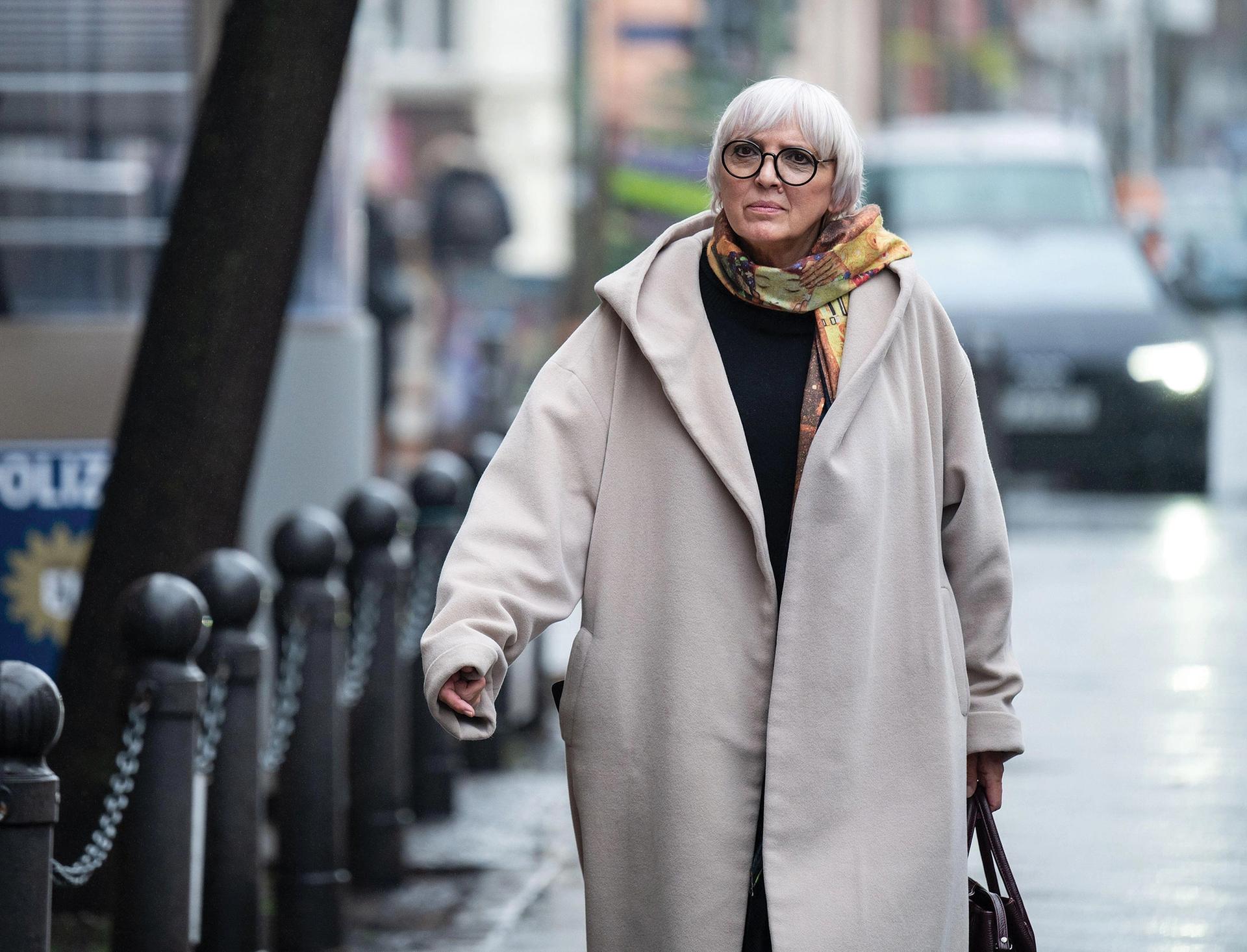Documenta is an exhibition renowned for the slow burn of its critical legacy, but the opening of its 15th edition earlier this month in Kassel (until 25 September) has elicited reactions from politicians and media more akin to a wildfire. In the most recent turn of events, an escalating row over alleged antisemitism and racism within the show, this year curated by the Indonesian collective ruangrupa, has spurred the German federal government to demand greater control of the state-funded quinquennial exhibition.
The latest scandal erupted last week, following the display of a 60ft banner work by the collective Taring Padi, also from Indonesia, that has been accused of containing an “anti-Semitic caricature of a Jewish person” as well as derogratory references to Mossad, the national intelligence agency in Israel. People’s Justice (2002) has since been removed entirely from its prominent position on the Friederichsplatz and its content is now being re-examined by Documenta and a team of independent sensitivity consultants.
Formal apologies have since been issued from Documenta’s curators and artistic team. Its director general Sabine Schormann, who has avoided being ousted despite calls for her dismissal from a number of Jewish groups, said that she failed to “keep a promise” that “there would be no anti-Semitic content at Documenta 15”, which has “no place in Germany”. Meanwhile, ruangrupa have expressed regret for the “pain and fear” that the images caused, and said that, in consultation with Taring Padi, they support the decision to take down the work.

Germany's culture minister Claudia Roth, reportedly plans to “reform” Documenta Photo: DPA picture alliance/Alamy Stock Photo
But it seems the damage is already done. On Friday, it was reported by the German newspaper Zeit that Claudia Roth, the nation’s culture minister, has released a paper announcing plans to “reform” the governance and funding structure of the exhibition.
Currently, Roth said, "local responsibility" is disproportionate to the global importance of Documenta and that the federal government does not have the “sufficient opportunity to participate”, Zeit reports. She said that federal funds will be now be contingent on a “mandatory” greater influence from the government, as well as more “international expertise”, that will involve the "plurality of German society including the Central Council of Jews". Roth assured Der Spiegel that Documenta’s federal funding would continue for the foreseeable future. She is now in talks with the Hessian art minister Angela Dorn to effect these reforms, according to Zeit.
Roth, a Green party politician who was appointed last year during Germany's parliamentary elections, had initially remained more neutral around the accusations of anti-Semitism levelled at Documenta. When the exhibition came under fire from Jewish groups across Germany for giving a platform to a number of pro-Palestinian and pro-BDS artists, she defended Documenta's “artistic license”. She has since denounced the Taring Padi work as anti-Semitic and “troubling” in a statement released last week, adding that her trust in the exhibition has been “betrayed”.
Money matters
At present, Documenta has a budget of over €40m—the largest of any exhibition in Germany. Besides ticket sales, it is funded by the following stakeholders: the city of Kassel, the state of Hesse, and the German Federal Cultural Foundation. The latter, which is under the purview of the Ministry of Culture and Media, accounts for €4.5m. Its oversight is split between these bodies and the exhibition’s artistic team. However, the balance of power between all four parties has been in flux since Documenta’s inception in 1955.
In fact, Roth’s plan is not unprecedented and will take Documenta closer to its pre-2018 structure, when the federal government had more control of the show. Four years ago, the former federal government decided to withdraw from the Documenta’s supervisory board while still partially funding the exhibition. This decision was a “mistake”, Roth tells Der Spiegel, and must be reverted.
“Documenta commands a colossal budget. This may be both a blessing and a curse,” the institutional funding expert Shwetal Patel tells The Art Newspaper. He has co-organised a now highly topical talk in Kassel on 29 June—which was planned well before Roth’s most recent announcement—that will address the dual necessity and complications of state funding in the arts.
“The financial crises of the previous decade, Covid and current recession fears mean that sustained public funding for the arts is more precarious than ever. In this context it is natural that the new government in Berlin (and its agencies) want to review how they fund the arts,” Patel says. “At this stage it is also about the optics. Documenta is an important soft power tool for Germany and I imagine that its new government is keen to take a stance against any hint of intolerance."
While Patel, who is one of the founding members of the Kochi Biennale, is reluctant to speculate as to whether the current row could have been avoided with greater federal government control, he says that it is clear from other biennial-type events that “government agencies and bureaucrats should not manage arts organisations; this job has to be left to a passionate and dedicated team that is embedded in, and invested in, Kassel.”


